Dana and Lauren Cavalea once led a fast-paced life in New York City, where he was the head strength training coach for the New York Yankees and she interviewed celebrities for ABC News. Today, they raise cattle and market beef from their upstate New York farm.
Listen to the Podcast
Subscribe to 15 Minutes With a Farmer on Apple Podcasts, Spotify, or wherever you listen to podcasts. Please rate and review us!
Meet the Cavaleas
In 2020, the Cavaleas purchased a farm near Greene, NY, around 3 hours northwest of Manhattan. It was meant to be a vacation property for the couple, but seeing empty pastures made them want to bring agriculture back to the farm.
Buying a starter herd of cattle on Craigslist was just the beginning. Wanting better options than what they could find in the grocery store, the Cavaleas expanded and began selling their beef, eventually adding hogs and chickens to the mix.
They started marketing and shipping beef, pork, and chicken across the country around three years ago. They live on the farm full time, and while they miss the city, they love the animals and running their business together.
Episode Highlights
- During the pandemic, consumers were looking for options beyond the grocery store for purchasing meat, which led the Cavaleas to start marketing directly and eventually shipping nationwide.
- Neither Dana nor Lauren have a background in agriculture, so they sought advice from mentors like Greg Judy and Joel Salatin.
- Dana stressed the importance of treating the farm like a business rather than a hobby.
- He said this venture has been one of the most expensive things he’s ever done.
- Moving from Manhattan to a farm in upstate New York has been a difficult adjustment after living their whole lives in the city.
Dana Cavalea
We purchased 13 head of cattle for $6,700 in a backyard transaction, and the next day we were farmers. We didn’t know what we were doing, but that’s where we started. And that’s where we began learning.
— Dana Cavalea
Links and Resources
Meet other farmers direct marketing their products:
Transcript
Please note: This transcript has not been edited.
Lisa Foust Prater: Welcome to the 15 Minutes With a Farmer podcast from Successful Farming. I’m your host, Lisa Foust Prater. My guests today are Dana and Lauren Cavalea. They raise cattle and direct market beef from Freedom Farms in upstate New York, but they are newcomers to agriculture. Before moving to their farm, they lived in New York city where Lauren worked for ABC News and Dana was a coach for the New York Yankees.
In each episode, I have a quick 15-minute conversation with a farmer to hear their story and share their experience, expertise and life lessons.
Well, you guys have a very unique story and we will get into what brought you to agriculture and your different backgrounds. But first, why don’t you tell us a bit about your operation and everything that you’re doing there.
Dana Cavalea: So we started Freedom Farms in 2020 or the end of 2020, it was originally just supposed to be a getaway vacation property outside of New York City. But it very quickly turned into more than that when we looked out and saw bare open farmland that had no animals on it. It just seemed a little bit strange. So we went ahead and went to Craigslist, a very reputable source for buying your first grouping of cattle.
And that’s what we did. We bought our first 13 head of cattle from a gentleman who was moving the next day. Whether that’s true or not, I don’t know, but he sold me on that. And we purchased 13 head of cattle for $6,700 in a backyard transaction. And the next day we were farmers. We didn’t know what we were doing, but that’s where we started. And that’s where we began learning. Then we decided, look, all these people are now wondering what we’re doing and they started to ask. “Hey, do you guys sell meat?”
Courtesy of Freedom Farms
Lisa Foust Prater: That is such interesting timing. Just during COVID, I’ve talked to lots of farmers who market their own meat and they all talk about how during that time, it was just so crazy.
Dana Cavalea: Yeah, no it was.
Lauren Cavalea: That’s why we started.
Dana Cavalea: Yeah, was, yeah, we just were getting tired of, I guess, seeing what was available, for, for grocery store options. And we said, look, there’s gotta be something better than this. And, ultimately there was. So we had to discover it on our own and start, you know, getting into the cattle business and into the direct to consumer meat business.
Lisa Foust Prater: Yeah, so let’s go back and talk about each of you have different and unique backgrounds outside of agriculture. So why don’t you each tell us about that, about your backgrounds?
Dana Cavalea: Go ahead, Lauren, you can start.
Courtesy of Lauren Cavalea
Lauren Cavalea: Well, I grew up in show business and I worked in entertainment, landed in news and worked at ABC News for over a decade and had no background in agriculture at all. But I think having land always intrigued me. You know, I always wanted a place where I could let my hair down and enjoy nature more. And when we came across this property, I thought it was just going to be like Dana said, like a summer home. And it actually turned into something more, which is great.
Now, I mean, I would never change anything. I think this is the most rewarding thing that I’m doing right now in my life. And we meet great people and we’re really excited to bring farm-raised meats to people nationwide now. A lot of people are concerned about the food today. So yeah, this is definitely more fulfilling than news. I learned a lot though throughout my career and I apply it to this business now. And so it’s the best of both worlds now. I get to do what I love and be around the animals and it’s the best. Wouldn’t change it.
Lisa Foust Prater: That’s amazing. Dana, what about you?
Dana Cavalea: Well, I spent my career in sports. So I was the head strength coach for the New York Yankees. We won a championship in 2009. So I did that for over a decade. So working with professional athletes was basically my first career.
Courtesy of Dana Cavalea
Lisa Foust Prater: Yeah, that’s so interesting to me. You know, I’m a journalist myself, so obviously I have that, you know, news background. We are big sports fans in my house, big baseball fans, although full disclosure, we’re Royals fans because, you know, this is where we are in the world and we’ve always loved the Royals but it’s so much fun to, you know, to think about the different paths that lead people to agriculture.
Not everyone grows up on a farm. Not everyone has advice from their parents and grandparents to turn to when they are getting started on their own. So tell me about that and how the two of you figured out the ins and outs of cattle production and who you got advice from.
Dana Cavalea: Well, the number one teacher is failure. So that’s our best teacher. So we’re always failing, to tell you the truth. And then we’re always figuring it out off of those failures. But we’ve done our best to bring in people too to help us out. Last year, well, the summer before last, we had Greg Judy come in from Missouri. We flew him in and we had a great time with Greg. He has become a good friend since then. And we’ve had a really nice relationship where we could bounce things off and get ideas. And then last summer we brought Joel Salatin in and we were able to pick his brain a bit. And you know what’s interesting with the both of them, I guess the nice thing was we’re not that far off, which is a good thing. It makes you feel good. And what you also learn is that it’s sort of like sports, and people that did what I did in sports, everyone has their own unique method and ideas, but that doesn’t mean that’s the only method and the only idea.
So for us, even coming in and challenging things that have been done for a while just by asking the question, like, “Hey, why do you do it like that?” And a lot of times you realize it’s like, “Well, you know, my dad did it like that and my grandfather did it like that and my great-grandfather did it like that. So that’s why I do it like that.”
For us, we didn’t have that lineage. So we had to use a lot of common sense.
Lauren Cavalea: And we also go by the animals. The animals teach you a lot.
Dana Cavalea: Yeah, they tell you. So I know in sports, I had to read the animals too. They just had jerseys on and numbers on their back. And they would tell you how they’re feeling and you’d be able to watch even if they were not telling the truth and you’d be able to see things. It’s kind of the same thing out here as well. So we just follow that, follow what we see and then follow your gut.
Lisa Foust Prater: Yeah. So what was the most surprising thing that you discovered when you got into this journey?
Dana Cavalea: Okay, I gotta answer this one. It is the most expensive thing I’ve ever seen in my entire life. That is unbelievable. I mean, with the amount that we spend on a day-to-day basis, I think we could be definitely members at Mar-a-Lago and we can probably reside in some of the nicest gated communities in America. With the amount that we pay out each month, it’s like a professional bill factory. So I would never do anything like that. And that was to my great surprise.
Lisa Foust Prater: Yeah, it is an expensive endeavor, you know, and whether you’re raising cattle or you’re, you know, planting crops and you have that, you know, those big combines and tractors don’t come cheap. It’s a very, it’s a very expensive endeavor
Dana Cavalea: Yeah, and you know, when we got involved with this, one of the things that I’ve said was, you know, we’re gonna do it for five years and then we’re gonna take a look. So it’s sort of the way I approach everything. It’s like, hey, let’s give it to five so we can really see where this thing’s at. Hey, you know, how much did we invest? How much did we earn? How much did it cost us? You know, where were the losses if there were any? Were they strategic or were they, my God, I didn’t know that was happening.
You know, we just closed out year three, although we bought it, we bought the farm at the end of 2020, 2021 we really didn’t sell any anything and then 22 we started. You know, so we just closed out our third year and are basically, I’d say 19 months away from that five-year marker to where we can answer, you know, the question, “Hey, how’s it going?” with a good solid answer as opposed to an emotional answer.
Lisa Foust Prater: Yeah, that’s really important too, farming is a very emotional thing. You know, there are, of course, it’s cyclical and there are years and spans of years where the markets are better than other years. And it can be really tough to make a profit some years and you kind of got to look at the big picture there. But yeah, a lot of times it feels like some folks who are so invested in it from a generational standpoint that that’s why they’re doing it. And even if the money doesn’t always make sense, you just kind of keep going. Maybe it’s a good decision for their family or whatever, but maybe not for the finances all the time. So that’s a tricky thing.
Dana Cavalea: I wanted to make sure that we came into this with fiscal responsibility and an awareness of like, hey, don’t just do it because it’s fun. Do it because it is a business. And that’s one of the lessons that I did extract from Greg Judy. I said, hey, do you do this because it’s fun and you enjoy it? He goes, “It is fun and I do enjoy it, but it’s a business. And I approach it as such.” And that’s still good for me.
Lisa Foust Prater: Right. Yeah. Yeah, that’s a that’s good advice and that’s a good mentor for you to have. So tell me about like how your lifestyle changed. I mean, are you living on the farm? Are you near the city? Like, tell me the logistics of how that all works.
Courtesy of Freedom Farms
Lauren Cavalea: So we’re in upstate New York. about 30 minutes out of Fampton, about three hours north of Manhattan, I would say. And he’ll tell you about lifestyle, but we do live on the farm and there’s always something happening as you know on a farm. So you never get really a day to kind of rest. I feel like I’m always on because I’m always anticipating, okay, how are the animals, you know, we check the animals up, this one’s sick, up, this one’s in labor. It’s just a constant thing. For me, I’m a workaholic, so I’m naturally like that. So I think living on the farm for me, it can be stressful, but overall, I enjoy it. Dana will take it from there.
Dana Cavalea: I think I lose. So I love the animals. I like the action.But it’s, for me, I think it’s been very hard.
Lauren Cavalea: Because we come from the city. we, I worked in Manhattan for forever. We grew up on Long Island. So it definitely was a culture shock. We don’t come from generational farmers and we’re not from this town. So we’re an outsider, which is okay.
Lisa Foust Prater: That is a real thing in many, if not most rural towns. The folks who grew up there, they’ve known each other for generations. And then when someone new comes in, it can be really tough, especially, maybe if they see you coming from the city and I would imagine that that is a difficult kind of relationship to put together.
Lauren Cavalea: We also run our business off the farm. So we ship meats nationwide now. And right now we have a whole packing team right on the farm that’s packing orders and getting those out. So we run the business off of it as well. So.
Courtesy of Freedom Farms
Lisa Foust Prater: Right. And I mean, you’re contributing to your community. know, people are working, people have jobs, they’re, you know, working with you.
Dana Cavalea: Yeah, which was the whole idea. Then every September, since we started the farm, we started, we do a festival that’s 100% free. We cover the expense of everything and it’s called Freedom Fest. And last year we had 850 people come again, free music, free food, free games, free rides for the kids, everything.
And we bring a lot of people in from New York City, New Jersey, Long Island, the whole Northeast. Yeah. So part of our model was like this agritourism model and bring folks that never would have even heard of this town to the town. And that’s a pretty cool thing to see. And then some of them end up, ”Hey, this is nice. We should buy a house here.” And they end up purchasing land or purchasing a home. So that’s pretty cool and it’s pretty rewarding, I would say. And what we’ve also learned, I’d say most importantly is certainly don’t look for applause from anybody but yourself. That’s kind of where we’re at with it and that’s okay. And our customers, they applaud pretty well too.
Lisa Foust Prater: Early days, you, what would you guys have thought about seeing where you are now?
Dana Cavalea: I used to sit in my office at Yankee Stadium and always look at large parcels of land, because we had a lot of guys from Texas and down south that were from farms, South Carolina, Tennessee, all over the place. So we would always be talking about that stuff. But actually raising the cattle and having a farm of cattle, was always into, truthfully, was into thoroughbred racehorses. So I never saw myself getting into the cattle business.
As a coach whose job was to enhance the performance of people, I said, I could see myself going into horse racing and enhancing, you know, racing abilities of horses, right? Something just similar but different. So I never would have seen this to be honest with you.
Lauren Cavalea: Yeah, this was not my plan. I always say, God has His plan and I go with it. I’ve always been like that. And He’s brought me to places I never would have dreamed. I always had a work ethic. I know I wanted to work in entertainment, in news, and I went for it and it happened. But I always also just put my trust in Him and He’s beyond my wildest dream.
Lisa Foust Prater: Yeah, life is interesting that way. When you just roll with it and when you say yes to opportunities and take those leaps, sometimes you can find yourself in a pretty amazing place. And it looks like that’s where you two are right now.
Dana Cavalea: Yeah, yeah, and the lesson that I keep learning, I guess, from the farm would be like, I’m a pusher. Push, push, push, push, push.
Lauren Cavalea: I am too.
Dana Cavalea: But I do think that there’s also a place to take your foot off the gas a little bit and glide.
Lauren Cavalea: Yeah, let it marinate. And that’s, I would say that the farm teaches that.
Lisa Foust Prater: Well, it’s so interesting what you guys are doing. And I love it that you have found your way to agriculture. There is room for everyone here and people come at it from all different ways. So I love seeing your ambition and your drive to be successful in this field and just wish you all the best.
Dana Cavalea: Thank you.
Lauren Cavalea: Thank you, Lisa.
Lisa Foust Prater: Thank you for listening. Please subscribe, rate and review us wherever you listen to your podcasts. Open the latest issue of Successful Farming and visit us online at agriculture.com for more interesting features and news for your farm. Join me next week for another episode of 15 Minutes With a Farmer.


:max_bytes(150000):strip_icc()/54422218704_4306ac9563_o-233521f62c594e098877df4c9a3cba63.jpg)
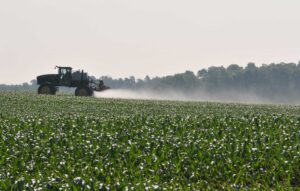
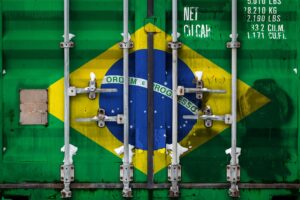


:max_bytes(150000):strip_icc()/Dana-ARod-f2801aa46cad4604ac722f7afe7d3cc6.jpg)
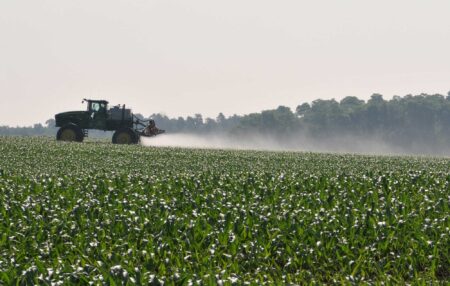
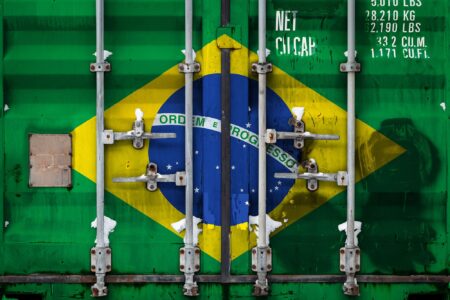
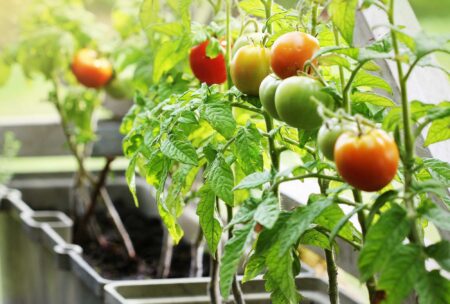
:max_bytes(150000):strip_icc()/Ship-docked-at-Port-Houston-1741d74fc460476881a4754e9ad43f42.jpg)
:max_bytes(150000):strip_icc()/54163679242_59f748f514_oSAFethanolplant-Iowa-d55130af73f44d9cb58b780fbdef60f2.jpg)